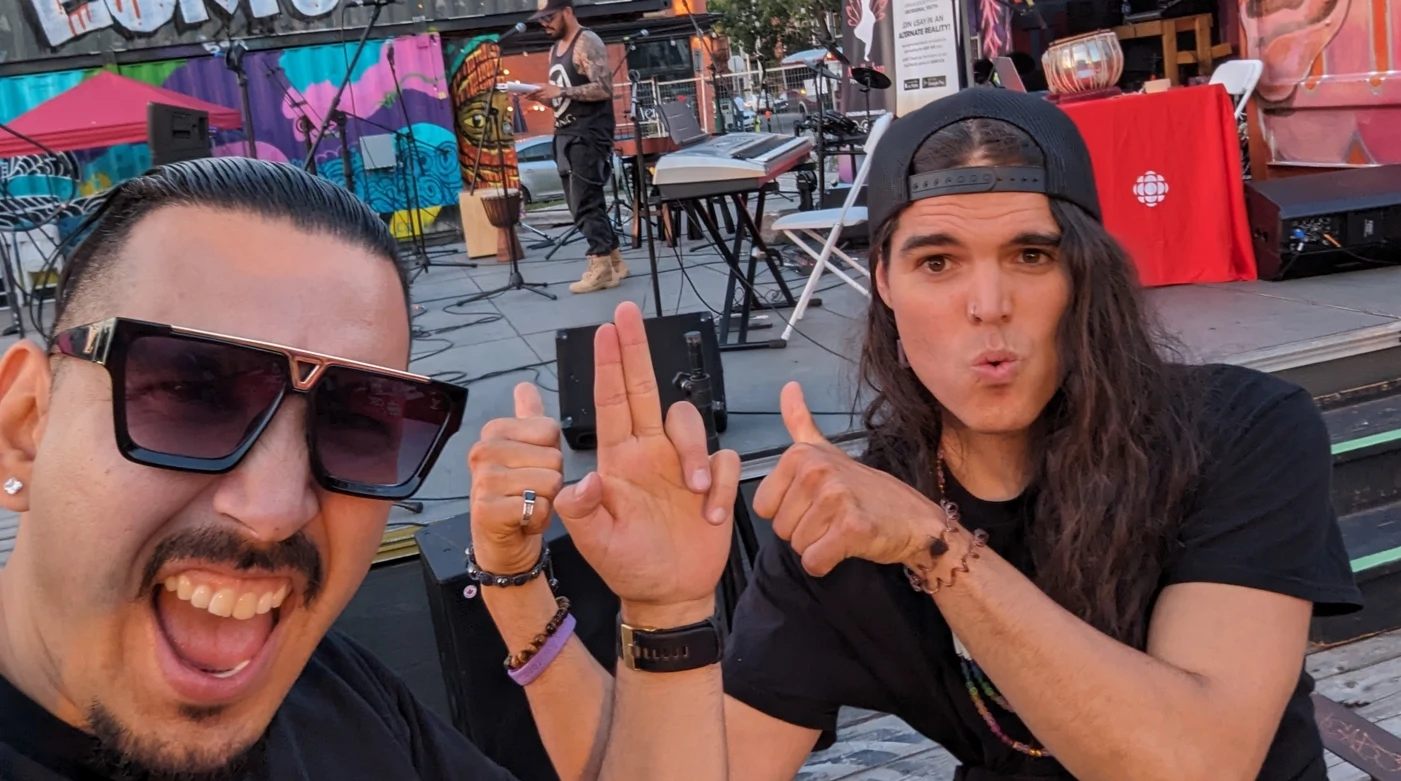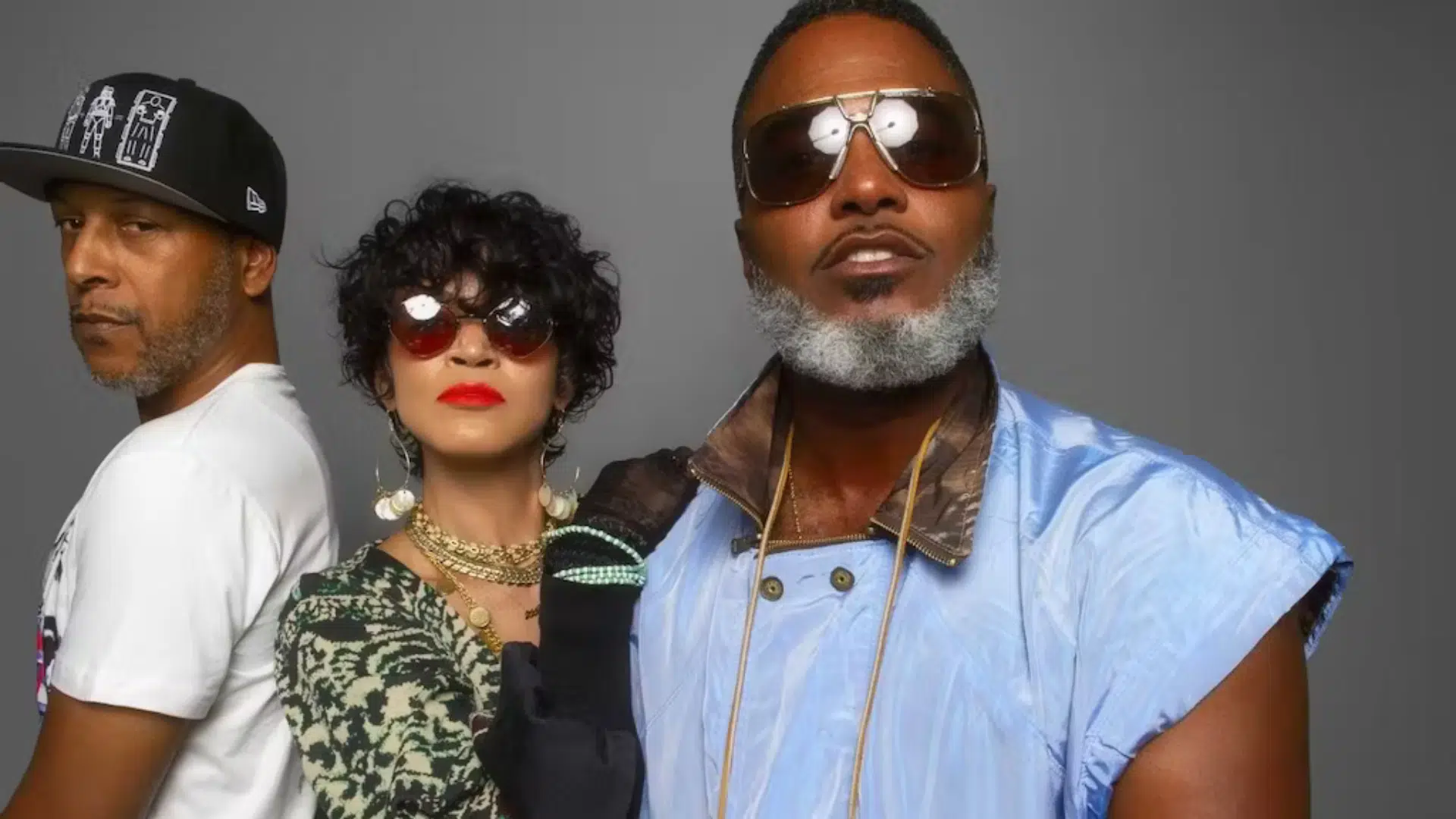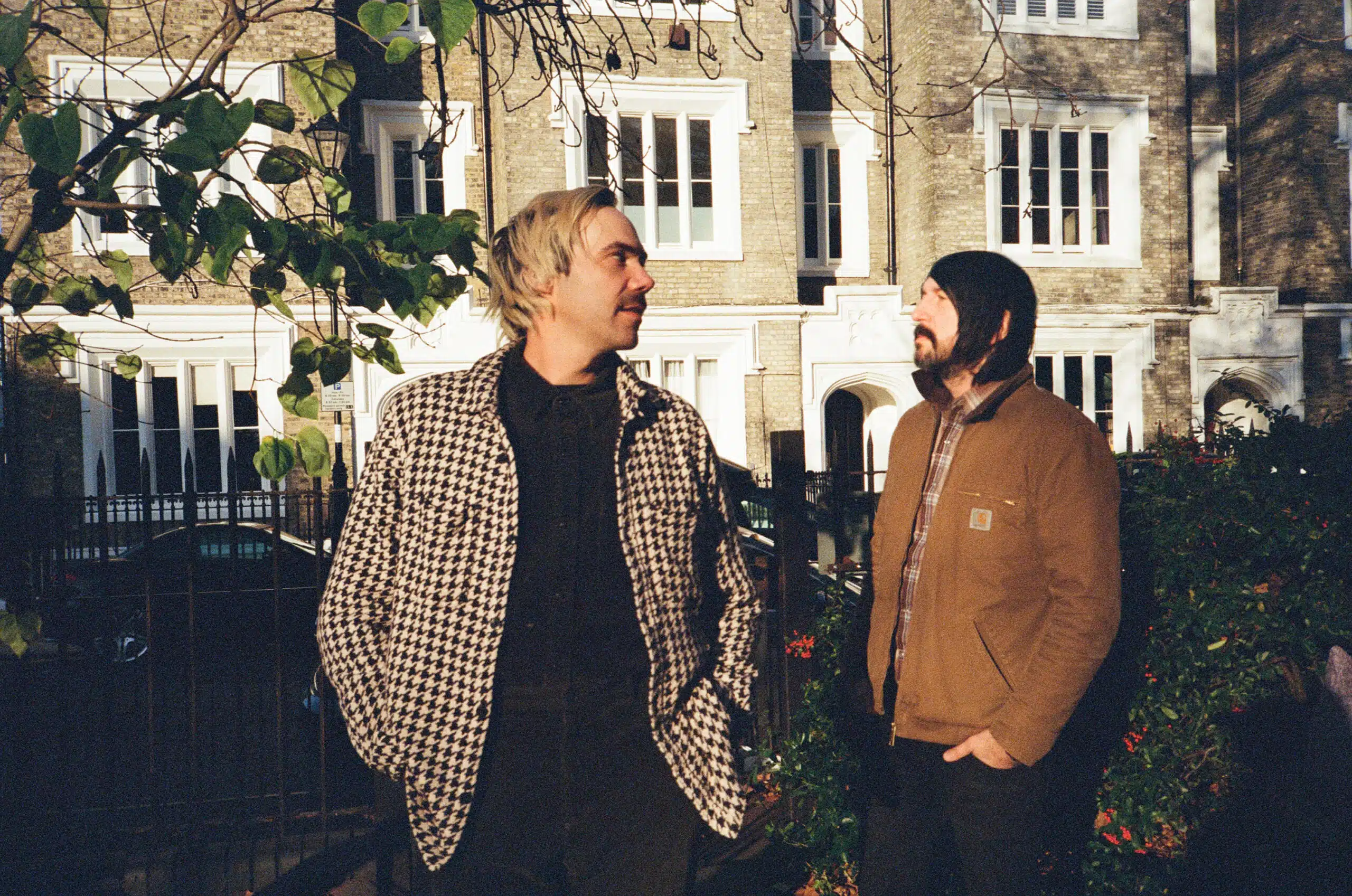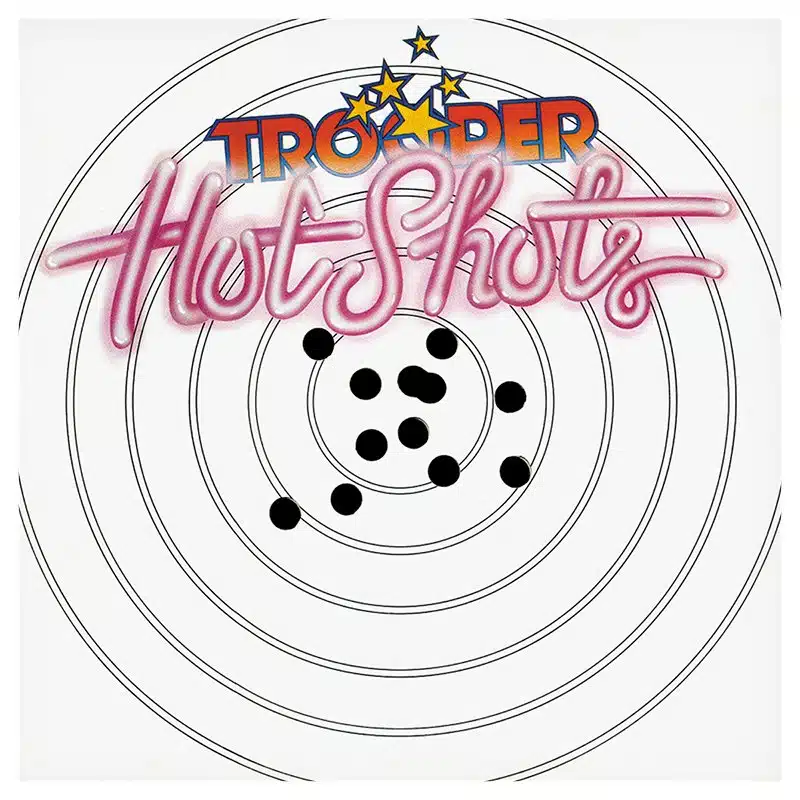“What would the city look like if music festivals were run and staffed by Indigenous folks?” That’s the question that inspired the creation of the Tribe Artist Society, an Indigenous-led hip hop and arts collective founded by Dwight Farahat and supported by long-time artist collaborator Sarah Good Medicine.
Tribe’s mission is to help artists become their most powerful selves, offering mentorship and creative community through programs like Monday Rap Night, the Sober Crew Drumming Circle, and Mixtape Club. Their team is building something bigger than music: a space for joy, healing, and transformation.
“YO, THIS IS OUR THING!”
Dwight: “We started Tribe because we didn’t see much Indigenous ownership or sovereignty in Calgary’s arts scene. I kept asking myself, ‘What would the city look like if music festivals were run and staffed by Indigenous folks? How would that change the way others see us, and how we see ourselves?’
“Too often, people only interact with Indigenous communities in contexts of tragedy and pain. And a lot of people just don’t know that we’re fun.
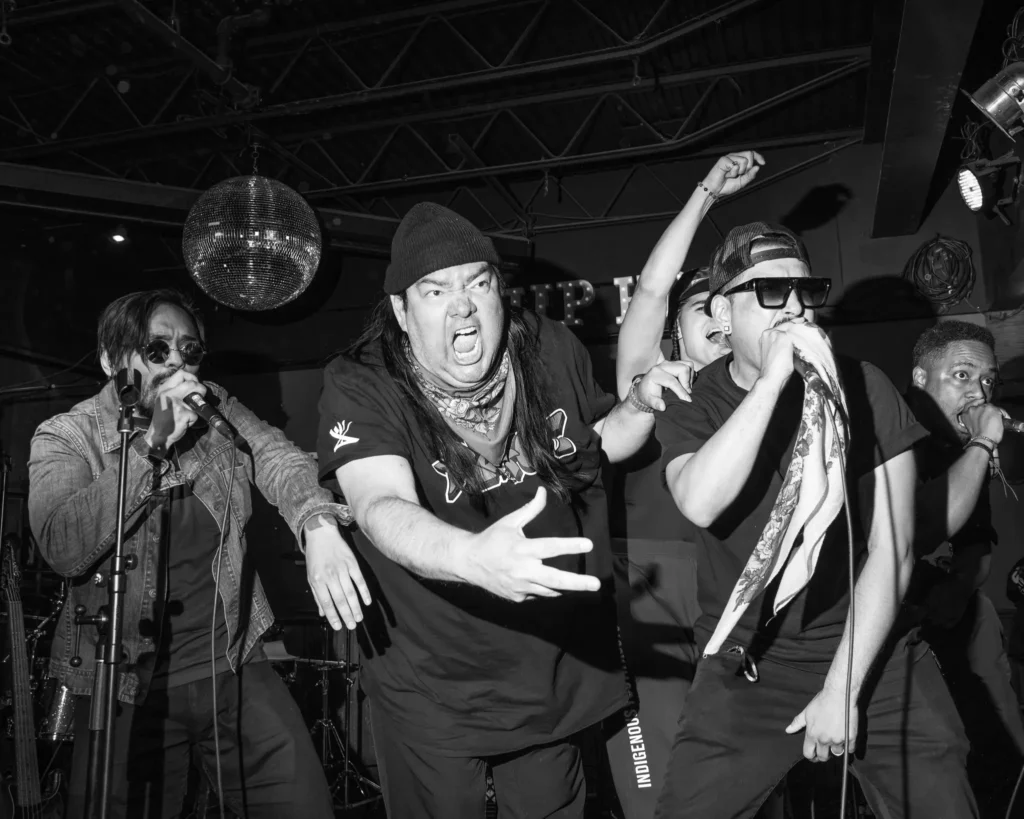
“We wanted Indigenous folks to walk into our programs and say, ‘Yo, this is our thing!’ and for non-Indigenous folks to feel welcomed too. An Elder once told me, ‘Anything exclusive is against the creator’s way.’ I really thought I would make that a part of my teaching.”
ATYPICAL SOCIETY
Dwight: “Wherever we go in Calgary, in mainstream Canada, you’re usually entering a Caucasian-owned, Christian space. There’s an underlying culture there. There are a lot of good values that come from Christianity, but when you come into our space, we have Christians, Catholics, Muslims, all different people.”
Sarah: “When our elders pray, they pray for all human beings. That’s really the core of it. There’s no forced way to ‘be’ in our spaces. It’s just what we do, and it’s been working.”
Dwight: “People come because of the music. And when they start learning about Indigenous culture, they get curious about their own Indigeneity. They start researching their roots, their family history. They ask themselves, ‘Who am I?’
“People in Canada are often confused about that. We live in what’s called an ‘atypical society,’ a culture that doesn’t recognize itself as a culture. Hip hop, freestyle, songwriting — they all help you understand yourself.”
FLOWERS IN THE DIRT
Dwight: “Some people come to Monday Rap Night and tell us, ‘This program saved my life.’ Others say, ‘I met all my friends at Tribe.’ My favourite band, Hip Hip Thursday — their drummer and bass player met here.”
Sarah: “Usually, it’s non-Indigenous organizations serving Indigenous people. But what if it were the other way around? That’s a paradigm shift. It’s hard for some people to imagine that Indigenous people could be the ones helping others heal.
“The main problem is capacity. We have limited funding for so many jobs. Sometimes nonprofits just can’t pay enough to keep people from taking regular jobs.”
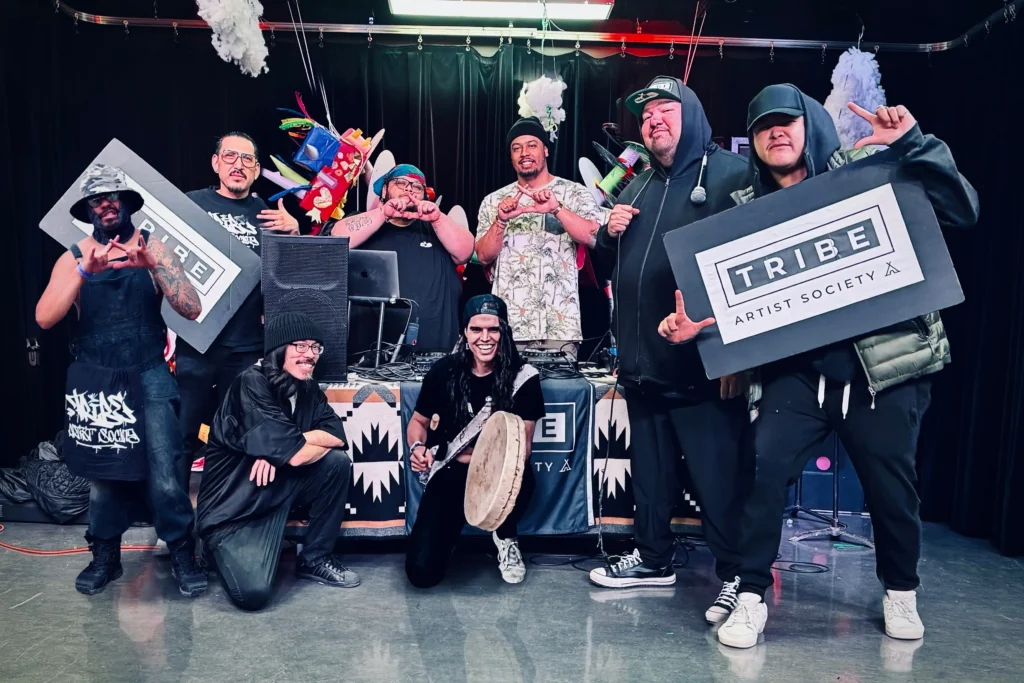
Dwight: “Most arts funders want to fund the fully grown, beautiful flower. But Tribe’s programs are about the dirt and the seeds where things begin to sprout. And that can happen in just a few weeks.
“You give someone a microphone, and at first, they won’t even say their name. Next week, they say their name. The week after, they say, ‘I wrote a rap.’ The next time [they say] ‘Do you want to hear my song?’
“That’s how the arts scene becomes more vibrant and full of life. And I can name 50 ‘flowers’ Calgary wouldn’t have if it weren’t for Monday Rap Night or Tribe Mixtape Club. And not all of them are Indigenous.”
SMUDGE, PIZZA, RAP
Dwight: “The big dream one day is to own Tribe House, a centre for us and for musicians. Calgary is missing an Indigenous art space that’s truly run by Indigenous folks. When we eventually own our own building — a place that’s smudge-friendly, noise-friendly, Indigenous-friendly — that’ll be the spot.”
Sarah: “It’d be really nice if artists, rappers, DJs, and boxers could also have real jobs through our art. Some of these guys built their confidence here and levelled up. Watching them level up makes you want to level up, too.”
Dwight: “When we do our thing, people fall back in love with themselves and feel less lonely. Imagine the streets full of music, [happening] because of what we did. How many more leaders can come from this little thing we started: gathering people, giving them pizza, and rapping?
“It’s a success formula if you’re looking for it: smudge, pizza, and rap.”
DWIGHT & SARAH ON MAKING IT IN HIP-HOP
1. Get show-ready.
“Make music you can perform. When you share your music, you meet ‘accidental audiences.’ Perform for the public: make people dance, think, and fall in love. Things you can just set up at a bus stop.”
2. Build your crowd.
“Be authentic to yourself, but also think: how do I make a song that both the hip hop community and the non-hip hop community can vibe with? That’s how you grow listeners.”
3. Keep good relations.
“Rap beef is part of the culture, but if you’re beefing with everybody, you’re going to exclude yourself really fast.”
4. Practice like it’s a stadium.
“Practice your lines thousands of times. Practice how you stand. Practice your mic falling out. Practice for those emergencies — so nothing can shake you.”
5. Have fun.
“Who cares? If there are two people in the room or a thousand, just do your thing. It’s easy to overthink all this stuff.”
This Q&A was created in collaboration with Werklund Centre.
To learn more about Tribe Artist Society, visit tribeartistsociety.com or Instagram @tribeartistsociety.
[Correction: the print version of this story described Sarah Good Medicine as co-leading the Tribe Artist Society. This role was misstated — she is a long-time artist collaborator. We have edited the digital story to properly reflect this.]
